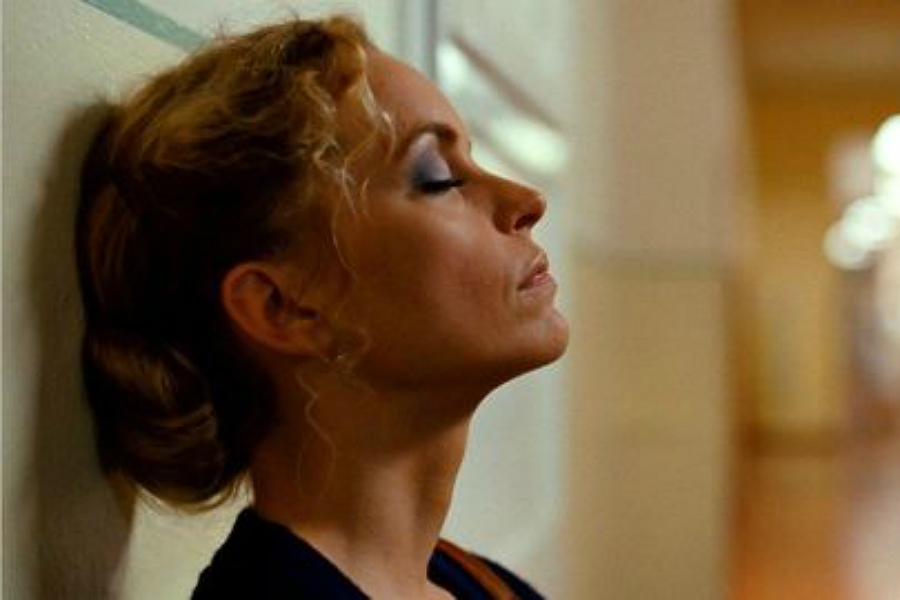Barbara and The Berlin School

Barbara, the new film from The Berlin School’s Christian Petzold, raises age-old questions, finds DW Mault…
Cinema has a tendency to eat itself, with a constant search for the new, the exotic. The prefix new wave, against whatever country finds itself in vogue (in a very much pejorative sense), has become facile to the point of fashionability. This need to group exists alongside the need to force individuality, poise, transgression into neat little lines, very much the infantilization of our common culture.
Outside of the narrow confines of Anglo-Saxon movies (different from cinema) and narrative, a decade ago the pitying eyes of the hegemonic commissars turned their vapid gaze upon Germany. Two Best Foreign Language Oscars in six years: Nirgendwo in Afrika (Nowhere in Africa, Caroline Link, 2001) and Das Leben der Anderen (Lives of Others, Florian Henckel von Donnersmarck, 2006), alongside two runners up in Der Untergang (Downfall, Oliver Hirschbiegel, 2004) and Sophie Scholl (Marc Rothemund, 2004), proclaimed a ‘new wave’ of German cinema had arrived, and offers – that the insecure associate with cinematic fulfillment – came a-knocking and were snapped up. After all who wouldn’t sacrifice the noble calling of national cinema to hang out with Johnny Depp and Angelina Jolie?
But there was a national cinematic grouping in Deutschland: The Berlin School. Short and snappy, and no sign of the cursed prefix of new wave (incidentally New Wave in German is… New Wave). So named because several of its leading figures studied at Berlin’s Deutsche Film und Fernsehakademie; leading light Christian Petzold very much at the forefront with fellow travellers: Angela Schanelec, Cristoph Hochhäusler and Ulrich Köhler.
Cinema can be at its best when it reacts to prevailing thought and The Berlin School stand counter to the Hollywoodization of the German mainstream: embraced into the dangerous breast of film as entertainment, film as an addition to the fast food factories that stand for movie palaces. Films like Downfall, The Lives Of Others and Uli Edel’s The Baader Meinhof Complex. Films reduced by their existence to the cannon fodder of a national heritage cinema that comforts the Anglo speaking world: a Germany of Nazipornifaction taking in ‘the good German’ and good looking models with machine guns that Hollywood was shocked to find out had a remit elsewhere.
The Berlin School films are usually low-budget efforts that adopt a minimalist approach as an aesthetic of reduction. The films strive to achieve an objective depiction of reality by using long takes, opting for natural sound over a musical score and featuring unknown or amateur actors. The films stress the characters’ spacial and temporal existence in the “here and now,” emphasizing the specificity of actual locations and times. In essence The Berlin School cinema is of observation, not fabrication. Traits they share with like minded souls that stretch the globe from Lucretia Martel of Argentina, Hirokazu Koreeda of Japan and Jessica Hausner of Austria.
Which eventually brings us to Christian Petzold’s Barbara (which opened this year’s Berlin Film Festival and won Petzold’s The Silver Bear for Best Director). Barbara is a talented doctor punished for applying for an exit visa from East Germany, her sentence is to be sent to the country to practice medicine. While there she plots with her West German lover an escape to Denmark.
I hate talking about plot, it sullies the ideas that lumber out from the perspective of the creative mind they first appeared in. Barbara is played by Nina Hoss (the fifth time she has worked with Petzold) and as ever brings a multifaceted strange coldness to guide us through a moral maze of post-German questions and non answers. Barbara is the anti-Argo, located in a universe of only 30 years ago but only slowly is that apparent. We wait, for something we think is happening, which never comes.
This is a mystery that is more than mysterious, a spy thriller that hides behind the glances and secrets that can only exist in a dying society. A moral that resides in the rules of class which shouldn’t in fact exist because of the idea that Communism has insidiously gotten rid of the idea of Class.
The questions that we must ponder surpass East Germany and the oppressive state of knowing but not escaping; it links to the idea of how do we live, love, make love and die in a society that creeks its way towards the nobility of death. This is a question that is never asked but ultimately will be answered. We look at this conundrum and we see Syria, but of course there are no answers, only today and tomorrow.
Barbara is a film that is about reduction, from dialogue and what we will never say, but can say with a look. This is a necessity for when you cannot trust anyone let alone yourself, in a world like this sex is a death sentence, enjoy is to give away the standpoints of desire that ultimately, lead to needs and not wants, and then we’re back at the dying society, the id that ploys away towards possibility.
As ever this guides us away from the constructs that we feed ourselves to stop being alone, but is this itself behind the totalitarian idea that we should never be alone? Again questions and no answers, but we are left with the stoical belief that a moment can make us advance towards the day when society dies, and we can move towards a new bigger brighter day that may even mean the transcendental notion of human desire and the will to couple to escape to life and shout YES!
Barbara screens Tuesday the 20th November 6pm @ FACT





